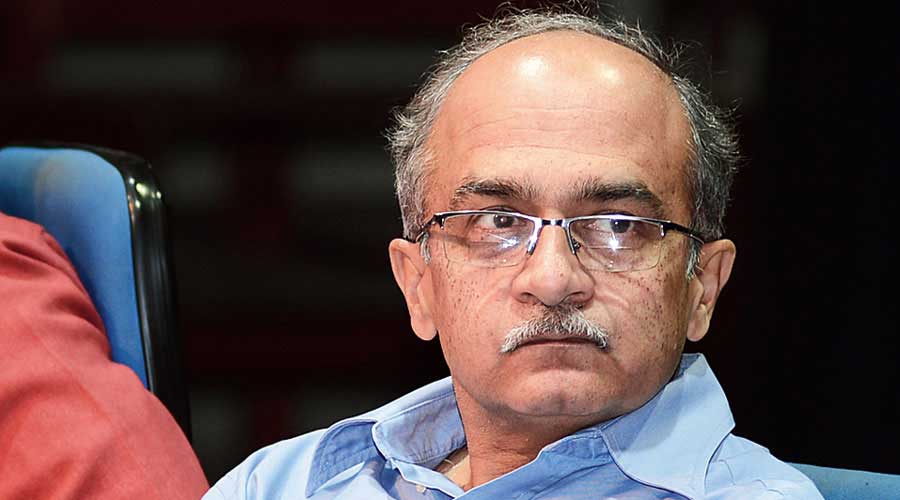A Patna college has set its students an assignment to read, research and comment on the Supreme Court’s contempt conviction of advocate Prashant Bhushan, reflecting how the issue has found resonance on campuses.
St Xavier’s College of Management and Technology gave the assignment to its fifth-semester undergraduate mass communication students on Thursday afternoon. The same day the apex court met to discuss the quantum of punishment for Bhusan but ended up giving him a couple of days to consider expressing an apology.
All the students’ opinions were digitally collected and edited under the guidance of a professor, Frank Krishner, before being compiled into a seven-minute video that ended with an appeal to save the Constitution.
In the video, the majority of the students criticised the judgment as a violation of the freedom of expression but a few were unhappy with one of Bhushan’s two tweets while the odd one supported the Supreme Court judgment unreservedly.
The college principal, Father T. Nishaanth, praised the students’ work but clarified that they would not be graded or marked on the basis of their performance in the assignment.
He said the mass communication students were regularly given assignments related to current affairs but could not say whether a similarly contentious issue had ever been chosen before. Attempts to reach Krishner, who gave the assignment, failed.
Father Nishaanth, however, appeared to align himself with the spirit of the assignment, saying the one thing that had made India’s democracy a “vibrant one has been the freedom of speech and expression — people have the right to express their views”.
“Dissent is not destruction. It is just disagreement and should be viewed as such,” he said.
“We have practised this in our country since ages and it got more amplified and focused since the time of Mahatma Gandhi.”
He added that he was happy at the aptitude for critical thinking the students had shown.
“(Bhushan’s tweets) are okay. They are justified. If we say about a politician that he should be answerable for his actions... the same goes for the Chief Justice of India,” Ishika, a student, said in the video.
“This is an overreaction (on the part of the apex court) and a self-defeating exercise…. Just because a party or an organisation is in power they cannot think that people cannot criticise them.”
Abhilasha Kumari echoed her: “Fair criticism of court should not be an offence; otherwise it will lead to abuse of power.”
Bhushan was convicted of criminal contempt of court on August 14 over two tweets he had posted on June 27 and 29. One of them said that democracy had been destroyed during the tenure of the past four Chief Justices of India, while the other commented on current Chief Justice S.A. Bobde mounting a Harley-Davidson in public without a mask at a time he had suspended physical court hearings because of the pandemic.
A few students argued that the provision of contempt of court was itself an attack on the freedom of expression.
“Contempt of court should be removed and constructive criticism should be welcomed by the Indian judiciary,” said Aastha Kumari.
A few students, however, supported the conviction or at least found one of Bhushan’s tweets objectionable. “The first tweet is not objectionable at all…. However, the second tweet is objectionable because the freedom of speech comes with certain responsibilities,” said Princemita.

